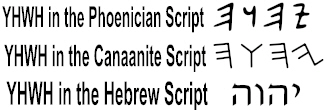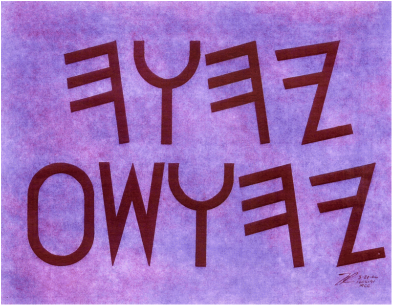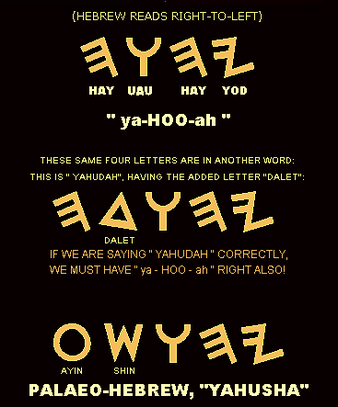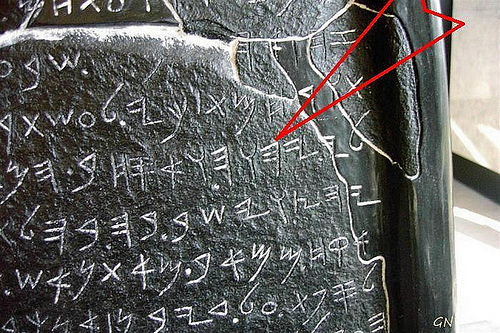EAST VS. WEST
The rationale and thought process of the people of the world can be primarily broken into two groups. Western thinking and eastern thinking. These lead to various philosophies that come forth, but the important concept to note from these two ways of thinking is that western thinking is abstract and eastern thinking is concrete. This is not to claim superiority of one over the other, just to illustrate the difference in the way that these two societies function. Western thinking formulates most of the European and United States culture, history, and governance, while eastern thinking is akin to African and Asian methods of rule. Western thinking brought the world much of its abstract thinking by capturing the imagination of its people. Western cultures invent amazing tales and stories that are very intricate and involves many aspects of thinking that cover the spectrum of emotions that is humanity.
In eastern thinking civilizations there was little room to take liberties with the accounts of history and even in their forms of poetry and art, an attention to detail is present. In eastern cultures names are very important, not only in respects to the Scriptures, but they played a significant role in the governance (sharia law) of society as well. The name of a person or place in eastern cultures are often identified by an event or action and people will often change the names of people or places to signify a change in their world that they all could see and understand.
The rationale and thought process of the people of the world can be primarily broken into two groups. Western thinking and eastern thinking. These lead to various philosophies that come forth, but the important concept to note from these two ways of thinking is that western thinking is abstract and eastern thinking is concrete. This is not to claim superiority of one over the other, just to illustrate the difference in the way that these two societies function. Western thinking formulates most of the European and United States culture, history, and governance, while eastern thinking is akin to African and Asian methods of rule. Western thinking brought the world much of its abstract thinking by capturing the imagination of its people. Western cultures invent amazing tales and stories that are very intricate and involves many aspects of thinking that cover the spectrum of emotions that is humanity.
In eastern thinking civilizations there was little room to take liberties with the accounts of history and even in their forms of poetry and art, an attention to detail is present. In eastern cultures names are very important, not only in respects to the Scriptures, but they played a significant role in the governance (sharia law) of society as well. The name of a person or place in eastern cultures are often identified by an event or action and people will often change the names of people or places to signify a change in their world that they all could see and understand.

The Scriptures has been translated into more than 500 languages with nearly 3000 languages having some portion of it. The original text was written in Hebrew with many versions that followed. The most widely used version prior to the middle ages was the Septuagint (named for the 70 Hebrew scholars who undertook the task) prior to the 3rd century BCE so that all could benefit from the Hebrew texts. Later versions of the Scriptures have been altered and changed by numerous translators for their own benefit, the most notable being the removal of the Heavenly Father's name YHWH (Yahuah) and replacing it with term "Lord" as well as replacing the term Elohim with the term "God" which has led to much confusion. Where a line should read YHWH (Yahuah) your Elohim, it now reads the "Lord" thy "God".

Translations during various time periods have led to many errors of context because of the change to the term "Lord", with a capilaized L, which replaced the name YHWH (Yahuah, Yahuwah, Yahawah or Yahweh) as well as replacing the word master with "lord" with a lower case l. According to current translations, the Scriptures tells the reader to call on the name of "Lord", they can only be saved by the name of the "Lord" and all must keep the name of the "Lord" sacred. The term "Lord" is just a title. If you replace with another title, the confusion becomes evident. Call on the name of the King, only the name of the King can save you or we must all keep the name of the King sacred leads to one question: What is his name?
The term Elohim is the plural form of the word El, which is the Hebrew word for mighty one (“god”) and represents the entire heavenly family including the many levels of the malakim (messengers or angels) and the Mashiach (Messiah) as well. This is why the creator is often referred to as El Shaddai, meaning almighty “god” and the El of the Elohim, meaning the most high “god”. The term Elohim can be used in a singular sense in that the entire spiritual family is created by him and of him, but he has none on his level.
The Scriptures mention his Name over 6,000 times...
YeshaYahu (Isaiah) 42:8
“I am YHWH (Yahuah); that is My NAME; my glory I give to no other, nor my praise to carved idols.”
YiremYahu (Jeremiah) 8:8
“How can you say ‘We are wise; YHWH’s (Yahuah's) word is with us,’ when in fact the lying pen of the scribes has turned it into falsehood.”
YiremYahu (Jeremiah) 12:16
And it shall come to pass, if they will diligently learn the ways of My people, to swear by My NAME, ‘YHWH (Yahuah) lives,’ (as they taught My people to swear by Baal,) then shall they be built in the midst of My people.”
Mikah (Micah) 4:5
“For all the peoples walk each in the NAME of its Elohim, but we will walk in the NAME of YHWH (Yahuah) our El Shaddai (Almighty) forever and ever.”
TsephanYah (Zephaniah) 3:9
“For at that time I will change the speech of the peoples to a pure language, that all of them may call upon the NAME of YHWH (Yahuah)and serve him with one accord.”
ZekarYah (Zechariah) 13:2
“And on that day, declares YHWH (Yahuah)of hosts, I will cut off the NAMES of the idols from the land, so that they shall be remembered no more. And also I will remove from the land the prophets and the spirit of uncleanness.”
Mal'aki (Malachi) 2:2
“If you will not listen, if you will not take it to heart to give honour to My NAME, says YHWH (Yahuah)of hosts, then I will send the curse upon you and I will curse your blessings. Indeed, I have already cursed them, because you do not lay it to heart.”
Ya'aqob (James) 2:7
“Are they not the ones who blaspheme the honorable NAME by which you were called?”
Hazon (Revelation)14:19
“Then I looked, and behold, on Mount Zion stood the Lamb, and with him 144,000, having HIS FATHER’S NAME (YHWH) written on their foreheads.”
“I am YHWH (Yahuah); that is My NAME; my glory I give to no other, nor my praise to carved idols.”
YiremYahu (Jeremiah) 8:8
“How can you say ‘We are wise; YHWH’s (Yahuah's) word is with us,’ when in fact the lying pen of the scribes has turned it into falsehood.”
YiremYahu (Jeremiah) 12:16
And it shall come to pass, if they will diligently learn the ways of My people, to swear by My NAME, ‘YHWH (Yahuah) lives,’ (as they taught My people to swear by Baal,) then shall they be built in the midst of My people.”
Mikah (Micah) 4:5
“For all the peoples walk each in the NAME of its Elohim, but we will walk in the NAME of YHWH (Yahuah) our El Shaddai (Almighty) forever and ever.”
TsephanYah (Zephaniah) 3:9
“For at that time I will change the speech of the peoples to a pure language, that all of them may call upon the NAME of YHWH (Yahuah)and serve him with one accord.”
ZekarYah (Zechariah) 13:2
“And on that day, declares YHWH (Yahuah)of hosts, I will cut off the NAMES of the idols from the land, so that they shall be remembered no more. And also I will remove from the land the prophets and the spirit of uncleanness.”
Mal'aki (Malachi) 2:2
“If you will not listen, if you will not take it to heart to give honour to My NAME, says YHWH (Yahuah)of hosts, then I will send the curse upon you and I will curse your blessings. Indeed, I have already cursed them, because you do not lay it to heart.”
Ya'aqob (James) 2:7
“Are they not the ones who blaspheme the honorable NAME by which you were called?”
Hazon (Revelation)14:19
“Then I looked, and behold, on Mount Zion stood the Lamb, and with him 144,000, having HIS FATHER’S NAME (YHWH) written on their foreheads.”


